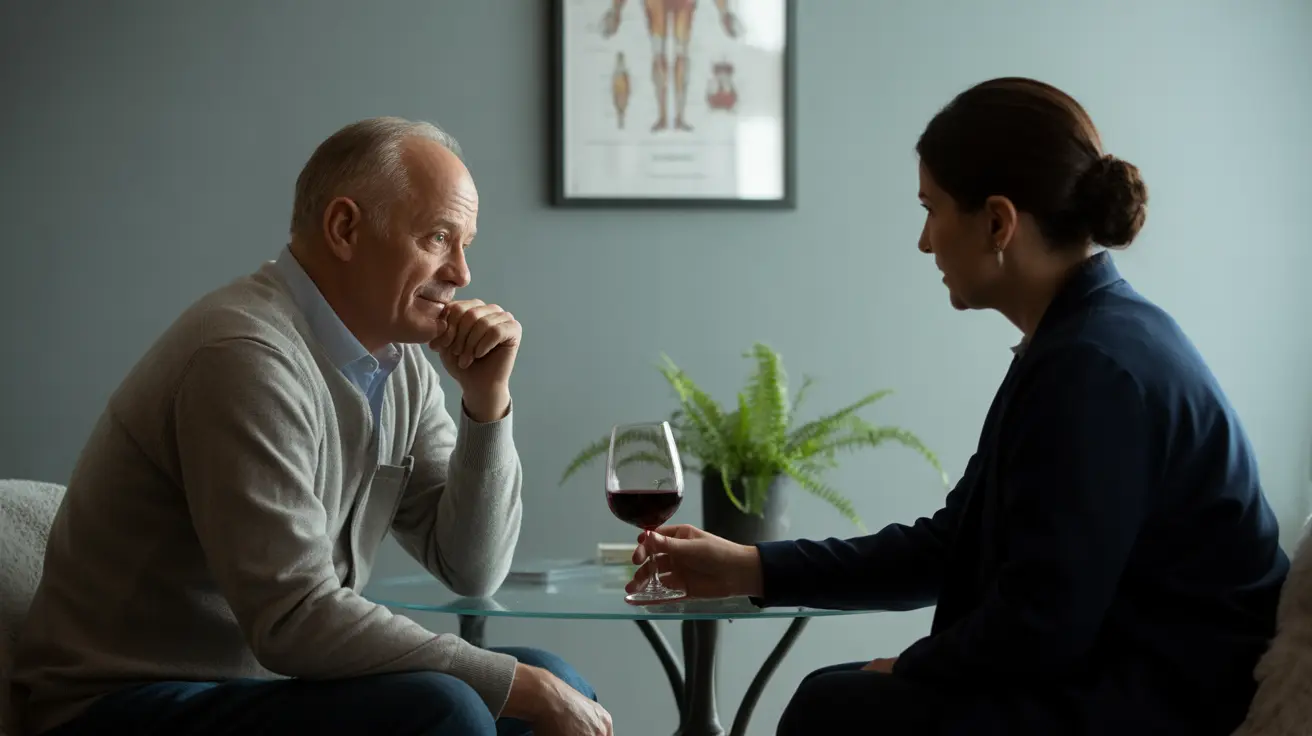Living with Parkinson's disease requires careful attention to lifestyle choices, including decisions about alcohol consumption. For individuals with Parkinson's disease, understanding how alcohol interacts with their condition and medications is crucial for maintaining their health and quality of life.
This comprehensive guide explores the relationship between alcohol and Parkinson's disease, examining both the potential risks and considerations that patients should discuss with their healthcare providers.
The Impact of Alcohol on Parkinson's Symptoms
Alcohol can significantly affect various aspects of Parkinson's disease, potentially exacerbating certain symptoms while masking others. The relationship between alcohol and Parkinson's symptoms is complex and can vary among individuals.
Movement and Balance Effects
One of the primary concerns for Parkinson's patients is how alcohol affects their motor symptoms. Alcohol can:
- Increase balance difficulties
- Worsen coordination problems
- Enhance tremors
- Amplify gait instability
Cognitive and Emotional Impact
Beyond physical symptoms, alcohol can influence cognitive and emotional aspects of Parkinson's disease:
- May increase confusion and memory issues
- Could affect mood and anxiety levels
- Might interfere with sleep patterns
- May impact decision-making abilities
Medication Interactions and Concerns
The interaction between alcohol and Parkinson's medications is a critical consideration. Many commonly prescribed medications for Parkinson's disease can have adverse reactions when combined with alcohol.
Common Medication Interactions
Several key medications may interact with alcohol:
- Levodopa: Alcohol might affect its absorption
- MAO-B inhibitors: Can cause dangerous blood pressure changes
- Dopamine agonists: May increase drowsiness and dizziness
Safe Drinking Guidelines for Parkinson's Patients
While complete abstinence may not be necessary for all Parkinson's patients, following specific guidelines can help minimize risks:
- Consult with healthcare providers about individual circumstances
- Consider limiting alcohol intake to special occasions
- Stay well within recommended drinking limits
- Monitor personal responses to alcohol carefully
Risk Prevention Strategies
For those who choose to drink, implementing safety measures is essential:
- Always drink with food
- Stay hydrated with water
- Choose times when symptoms are well-controlled
- Have a support person present when drinking
Frequently Asked Questions
How does alcohol affect the symptoms of Parkinson's disease?
Alcohol can worsen motor symptoms like tremors and balance problems in Parkinson's disease. It may also impact cognitive function and increase the risk of falls. The effects can vary significantly between individuals.
Can drinking alcohol interfere with Parkinson's medications like levodopa?
Yes, alcohol can interact with Parkinson's medications, potentially reducing their effectiveness or increasing side effects. This is particularly true for levodopa and other commonly prescribed medications.
Is alcohol consumption linked to an increased risk of developing Parkinson's disease?
Current research shows no clear direct link between alcohol consumption and developing Parkinson's disease. However, some studies suggest moderate alcohol consumption might have a slight protective effect, though more research is needed.
What are the risks of drinking alcohol if I have Parkinson's disease, especially related to balance and falls?
The primary risks include increased balance problems, greater fall risk, impaired coordination, and potential cognitive effects. These risks are particularly significant because Parkinson's already affects balance and mobility.
How much alcohol is safe to drink for someone living with Parkinson's disease?
Safe alcohol consumption varies by individual. Some patients may need to avoid alcohol entirely, while others might safely consume small amounts. It's essential to discuss personal limits with your healthcare provider and stay well within recommended guidelines.




